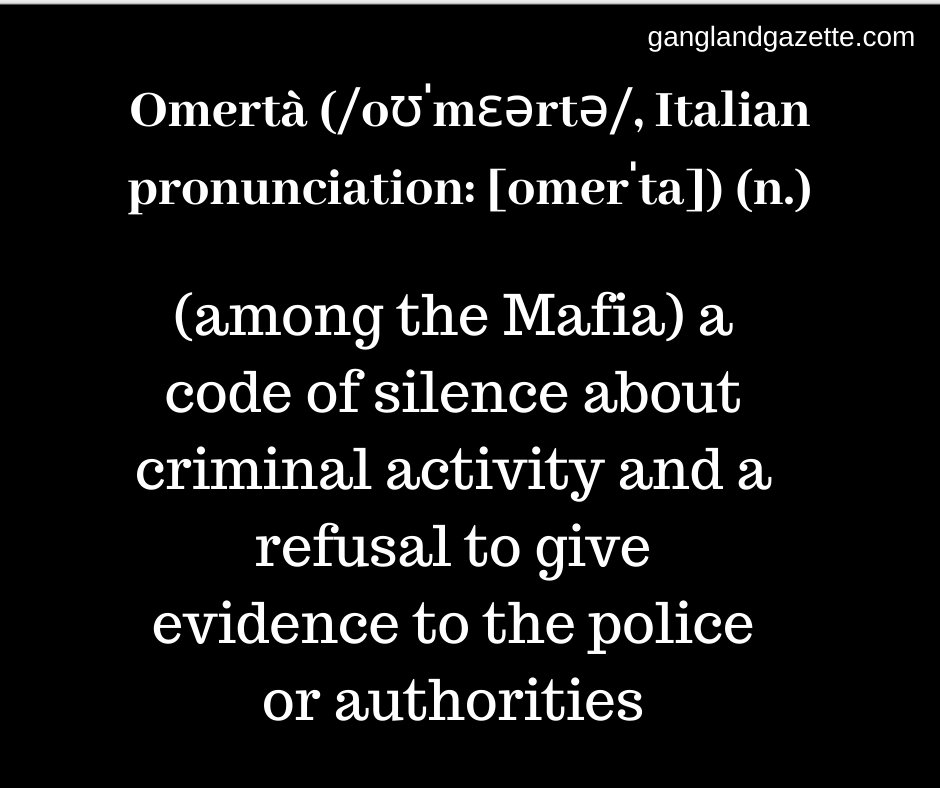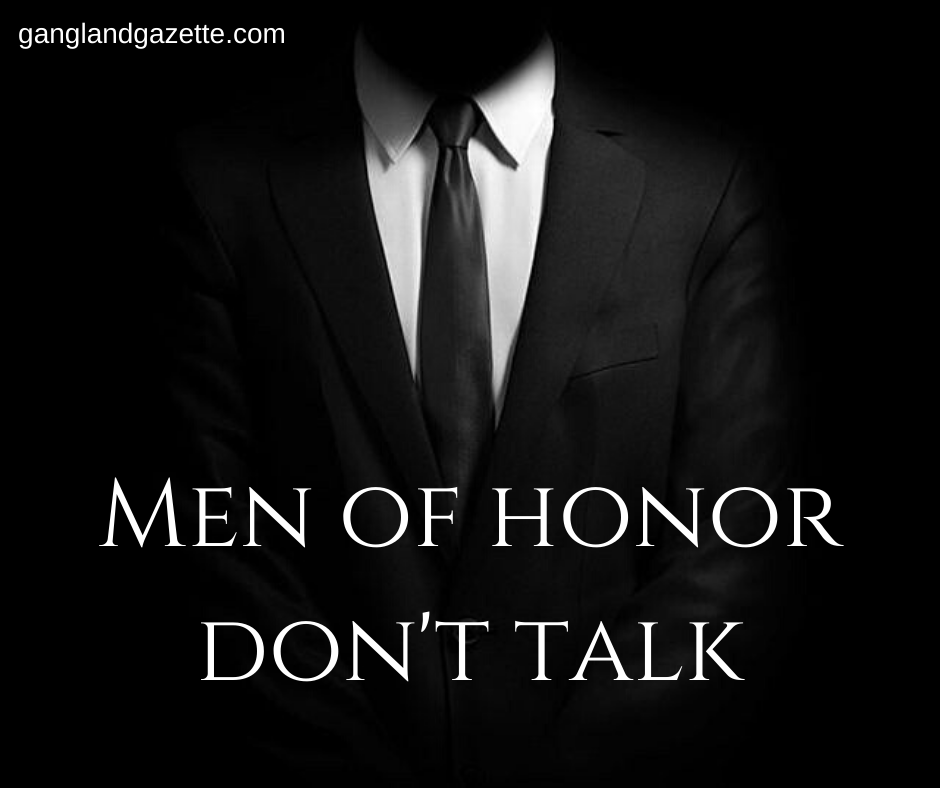Definition
Omertà (noun)
(among the Mafia) a code of silence about criminal activity and a refusal to give evidence to the police.‘loyal to the oath of omertà’
Origin
Italian dialect, variant of umiltà ‘humility’.

The word can also be traced to a word in the Spanish language, hombredad, which literally translated means manliness – a variant of the Sicilian word omu, meaning man. Differing theories exist on this however, one of the most popular being that the origins of the word come from the Latin humilitas, which translates as humility. This word then became umirtà, and it finally evolved into omertà in some Italian regions.
”Omertà implies “the categorical prohibition of cooperation with state authorities or reliance on its services, even when one has been victim of a crime.” A person should absolutely avoid interfering in the business of others and should not inform the authorities of a crime under any circumstances, but if it is justified, he may personally avenge a physical attack on himself or on his family by vendetta, literally a taking of revenge, a feud. Even if somebody is convicted of a crime that he has not committed, he is supposed to serve the sentence without giving the police any information about the real criminal, even if the criminal has nothing to do with the Mafia. Within Mafia culture, breaking omertà is punishable by death.” (source: Paoli, Mafia Brotherhoods)
It’s widely accepted that Sicilians were the first to adopt and adhere to the code of omertà , and this happened long before the emergence of the ‘Mafia’ or Cosa Nostra as we know it today – maybe even as far back as the 16th century as rebellion over Spanish rule. The code is thought to have flourished through war, colonization by foreign countries and oppression.
“Whoever appeals to the law against his fellow man is either a fool or a coward. Whoever cannot take care of himself without police protection is both. It is as cowardly to betray an offender to justice, even though his offences be against yourself, as it is not to avenge an injury by violence. It is dastardly and contemptible in a wounded man to betray the name of his assailant, because if he recovers, he must naturally expect to take vengeance himself.” (Source: Porello, The Rise and Fall of the Cleveland Mafia)

Basically, the code of omertà places major importance on honor and silence when dealing with authority or outsiders – and any kind of cooperation with police or other authorities is forbidden at all times. If this code is broken it could mean death for the perpetrator, and at the very least they will be shunned and labelled a ‘rat’ or ‘snitch’.
There have been many ‘turncoats’ and people who have gone against the ‘code of honor‘.
In your opinion, who has had the biggest impact on the future of organized crime by breaking the code of omertà?
This post contains affiliate links. We hope you love the products we recommend! Just so you know, we may collect a share of sales or other compensation from the links on this page. This is at no extra cost to you, and it helps to keep our website going. Thank you if you use our links, we really appreciate it!